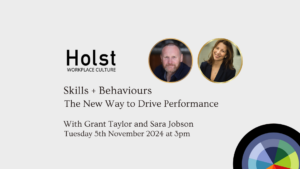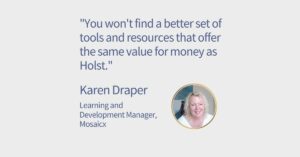HR professionals, as architects of the employee experience, play the most crucial role in ensuring that new hires seamlessly assimilate into the company culture and contribute meaningfully from day one.
Here, we’ll explore the three key stages of successful onboarding:
🌟 Engagement from Day 1: Tailored plans for individuals inspire engagement.
🌟 Faster Goal Achievement: Leverage natural strengths for quicker results.
🌟 High Retention Rates: Successful navigation of the first 90 days boosts retention.
Job Role Benchmarking: Lay the Foundation for Success
The onboarding journey begins before you even go out to market, with job role benchmarking.
HR professionals collaborate with hiring managers and their teams to define the skills, competencies, and cultural fit required for success in a particular role. This involves a deep dive into the specific requirements of the position and the team, ensuring that expectations are clear and aligned with the organisation’s objectives.
By establishing a comprehensive job benchmark, HR professionals can streamline the recruitment process and provide new hires with a clear roadmap for their roles and responsibilities.
Assessments: Unveil Strengths and Areas for Growth
Assessments form the second key stage, offering valuable insights into a new hire’s capabilities and potential areas for development.
HR professionals employ a range of assessments, including skills assessments, personality evaluations, and assessments for emotional intelligence, resilience, and motivation, to gain a holistic understanding of the individual.
Skills assessments verify the technical proficiencies necessary for the role, while personality evaluations can gauge alignment with both the job role requirements and the company culture. Emotional intelligence, resilience, and motivation assessments provide insights into crucial aspects of an individual’s ability to navigate challenges, adapt to change, and stay motivated in a dynamic work environment.
Leveraging these assessments allows HR professionals to tailor onboarding strategies, which foster personalisation and enable targeted development plans for both individual and team performance.
Integration: Facilitate a Seamless Transition
The final stage focuses on integration, where HR professionals create a pathway which supports a smooth transition for new hires. Beyond traditional orientation, this includes strategies for social integration, mentorship programmes, and an ongoing support structure.
Social integration involves creating opportunities for new hires to connect with colleagues and develop a sense of belonging. Mentorship programmes, guided by seasoned employees, offer valuable insights and support in navigating the company culture. Regular check-ins ensure the onboarding process meets evolving needs.
Through this holistic approach to onboarding, HR professionals can accelerate new hires’ integration and establish the foundation for sustained success.
Successful onboarding, managed by HR professionals, is a multifaceted process crucial for organisational success. From job role benchmarking through to assessments and integration, a well-crafted onboarding journey not only accelerates new hires’ assimilation but also creates the foundation for their long-term success.






